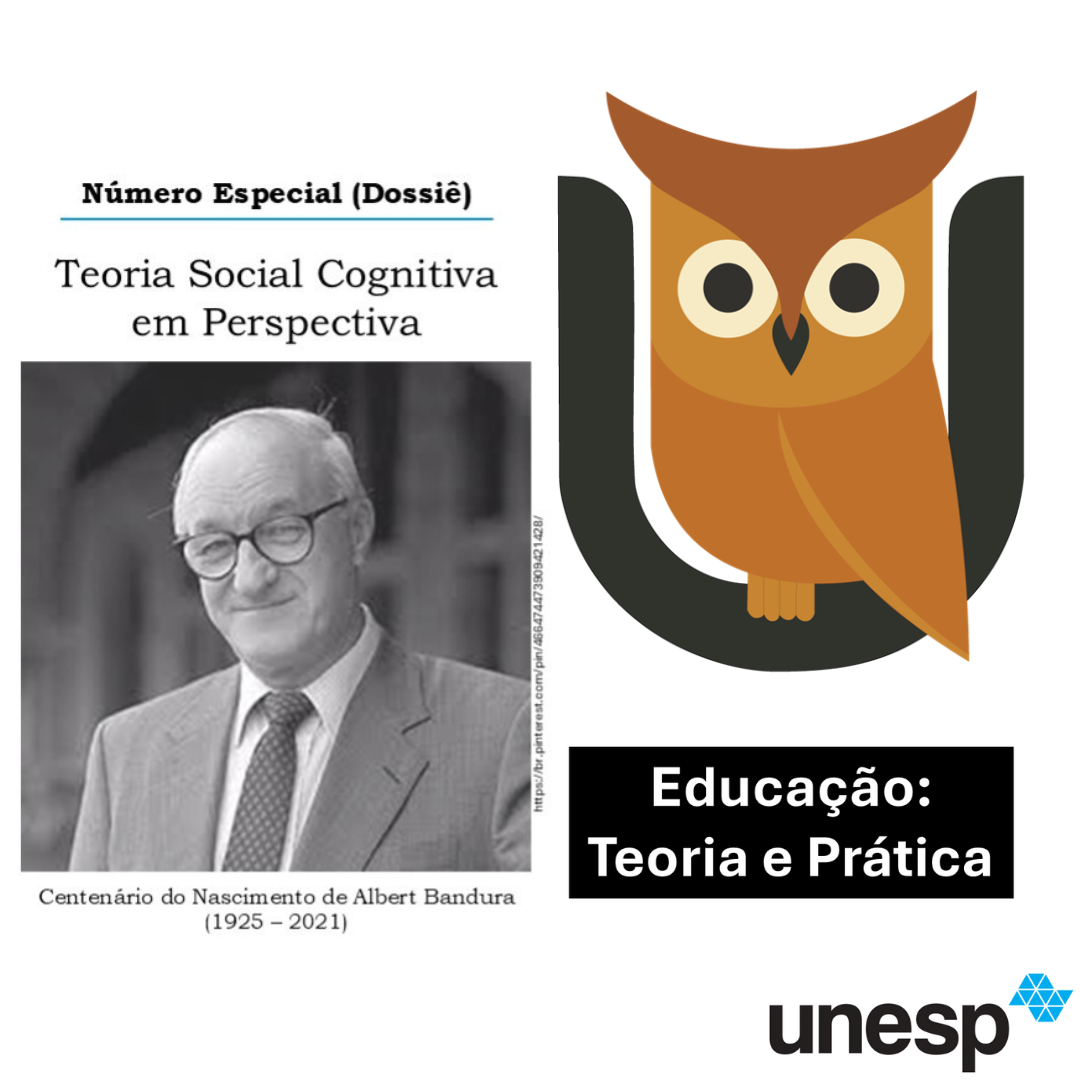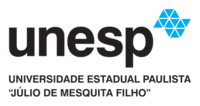The Determinants and Role of Personal Agency in the Self-Regulation Empowerment Program (SREP): Influence of Social Cognitive Theory
DOI:
https://doi.org/10.18675/1981-8106.v35.n.70.s19002Palavras-chave:
Social cognitive theory. Self-regulated learning. Agency. Self-efficacy. Educational intervention.Resumo
Albert Bandura is one of the most prolific and influential psychologists and researchers in history. In addition to championing the importance of people’s perceptions of personal capability (i.e., self-efficacy), Bandura developed a complex, generative perspective of personality (i.e., Social Cognitive Theory [SCT]) that emphasizes the potential of humans to act with purpose, intentionality, and agency on the world in which they operate. In this paper, I review core principles and mechanisms embedded within SCT that stimulate and cultivate this notion of personal agency, such as self-efficacy, cyclical regulation, triadic reciprocality, and observational learning. I then discuss how these agency-enhancing principles were used to develop the procedures and activities of an applied academic intervention program designed to optimize middle school and high school student motivation, self-regulated learning, and academic achievement. By mapping Bandura’s core principles to the activities of a school-based intervention, I hope to shine the light on how educators and school-based practitioners can similarly apply SCT principles in their professional roles.
Referências
BANDURA, A. Self-efficacy: the exercise of control. New York, NY: W. H. Freeman, 1997.
BANDURA, A. Social cognitive theory: an agentic perspective on human nature. Wiley, 2023.
BANDURA, A. Social foundations of thought and action: a social cognitive theory. Prentice-Hall, Inc, 1986.
CLEARY, T. J. Social validity perceptions of the Self-Regulation Empowerment Program (SREP): a qualitative investigation. Journal of Applied School Psychology, v. 37, n. 1, p. 16-42, 2021. DOI: https://doi.org/10.1080/15377903.2020.1772433.
CLEARY, T. J.; KITSANTAS, A. Motivation and self-regulated learning influences on middle school mathematics achievement. School Psychology Review, v. 46, p. 88-107, 2017. DOI:10.17105/SPR46-1.88-107.
CLEARY, T. J.; KITSANTAS, A.; PAPE, S.; SLEMP, J. Integration of socialization influences and the development of self-regulated learning skills: A social-cognitive perspective. In: LIEM, G. A.; MCINERNEY, D. M. (ed.), Big theories revisited. 2. ed. Charlotte, NC: Information Age Publishing, 2018. p. 269-294.
CLEARY, T. J.; PLATTEN, P. Examining the correspondence between self-regulated learning and academic achievement: A case study analysis [Special Issue]. Educational Research International, v. 2013, artigo 272560, 2013. DOI: 10.1155/2013/272560.
CLEARY, T. J.; PLATTEN, P.; NELSON, A. Effectiveness of the Self-Regulation Empowerment Program with urban high school students. Journal of Advanced Academics, v. 20, n. 1, p. 70-107, 2008.
CLEARY, T. J.; RUSSO, M. R. A multi-level framework for assessing self-regulated learning in school contexts: Innovations, challenges, and future directions. Psychology in the Schools, v. 61, n. 1, p. 80-102, 2024. DOI: https://doi.org/10.1002/pits.23035.
CLEARY, T. J.; SLEMP. J.; REDDY, L.; ALPERIN, A.; LUI, A.; AUSTIN, A.; CEDAR, T. Characteristics and uses of SRL microanalysis across diverse contexts, tasks, and populations: a systematic review. School Psychology Review, v. 52, n. 2, p. 159-179, 2023. DOI:10.1080/2372966X.2020.1862627
CLEARY, T. J.; VELARDI, B.; SCHNAIDMAN, B. Effects of the Self-Regulated Learning Empowerment Program on middle school students’ strategic skills, self-efficacy, and mathematics achievement. Journal of School Psychology, v. 64, p. 28-42, 2017. DOI:10.1016/j.jsp.2017.04.004
GRAHAM, S.; HARRIS, K. R. Almost 30 years of writing research: Making sense of it all with The Wrath of Khan. Learning Disabilities Research & Practice, v. 24, n. 2, p. 58-68, 2009. DOI: https://doi.org/10.1111/j.1540-5826.2009.01277.x.
PAJARES, F.; GRAHAM, L. Self-efficacy, motivation constructs, and mathematics performance of entering middle school students. Contemporary Educational Psychology, v. 24, p. 124-139, 1999.
PAJARES, F.; KRANZLER, J. Self-efficacy beliefs and general mental ability in mathematical problem-solving. Contemporary Educational Psychology, v. 20, n. 4, p. 426-443, 1995. DOI: https://doi.org/10.1006/ceps.1995.1029.
PANADERO, E. A review of self-regulated learning: six models and four directions for research. Frontiers in Psychology, v. 8, artigo 422, 2017. DOI: https://doi.org/10.3389/fpsyg.2017.00422.
PERKINS, D. D.; ZIMMERMAN, M. A. Empowerment theory, research, and application. American Journal of Community Psychology, v. 23, p. 569-579, 1995.
PINTRICH, P. R. The role of goal orientation in self-regulated learning. In: BOEKAERTS, M.; PINTRICH, P.; ZEIDNER, M. (ed.), Handbook of self-regulation. Orlando, FL: Academic Press, 2000. p. 452-502.
SAKIZ, G.; PAPE, S. J.; WOOLFOLK HOY, A. Does perceived teacher affective supports matter for middle school students in mathematics classrooms? Journal of School Psychology, v. 50, p. 235-255, 2012. DOI: 10.1016/j.jsp.2011.10.005.
SCHUNK, D. H. Learning theories: an educational perspective. 6. ed. Pearson Education Inc, 2014.
SCHUNK, D. H. Self-efficacy for reading and writing: Influence of modeling, goal setting, and self-evaluation. Reading and Writing Quarterly, v. 19, p. 159-172, 2003. DOI: https://doi.org/10.1080/10573560308219.
SCHUNK, D. H.; HANSON, A. R. Peer models: influence on children's self-efficacy and achievement. Journal of Educational Psychology, v. 77, n. 3, p. 313-322, 1985. DOI: https://doi.org/10.1037/0022-0663.77.3.313.
SCHUNK, D. H.; ZIMMERMAN, B. J. Social origins of self-regulatory competence. Educational Psychologist, v. 32, n. 4, p. 195-208, 1997. DOI: https://doi.org/10.1207/s15326985ep3204_1.
ZIMMERMAN, M. A. Empowerment theory: Psychological, organizational, and community levels of analysis. In: RAPPAPORT, J.; SEIDMAN, E. (ed.). Handbook of community psychology. Kluwer Academic Publishers, 2000. p. 43-63. DOI: https://doi.org/10.1007/978-1-4615-4193-6_2.
ZIMMERMAN, B. J. Attaining self-regulation: A social-cognitive perspective. In: BOEKAERTS, M.; PINTRICH, P.; ZEIDNER, M. (ed.). Handbook of self-regulation. Academic Press, 2000. p. 13-39.
ZIMMERMAN, B. J.; BONNER, S.; KOVACH, R. Developing self-regulated learners: beyond achievement to self-efficacy. American Psychological Association, 1996. DOI: https://doi.org/10.1037/10213-000
ZIMMERMAN, B. J.; KITSANTAS, A. Acquiring writing revision and self-regulatory skill through observation and emulation. Journal of Educational Psychology, v. 94, n. 4, p. 660-668, 2002. DOI: https://doi.org/10.1037/0022-0663.94.4.660.
ZIMMERMAN, B. J.; KITSANTAS, A. Homework practices and academic achievement: The mediating role of self-efficacy and perceived responsibility beliefs. Contemporary Educational Psychology, v. 30, n. 4, p. 397-417, 2005. DOI: https://doi.org/10.1016/j.cedpsych.2005.05.003.
Downloads
Publicado
Como Citar
Edição
Seção
Licença
Os Autores que publicam nessa revista concordam com os seguintes termos:
a) Os autores cedem os direitos autorais à revista, com o trabalho simultaneamente licenciado sob a Creative Commons Attribution License que permite o compartilhamento do trabalho com reconhecimento da sua autoria e publicação nesta revista.
b) A política adotada pela Comissão Editorial é a de ceder os direitos autorais somente após um período de 30 meses da data de publicação do artigo. Transcorrido esse tempo, os autores interessados em publicar o mesmo texto em outra obra devem encaminhar uma carta à Comissão Editorial solicitando a liberação de cessão dos direitos autorais e aguardar resposta.
c) Esta revista proporciona acesso público a todo o seu conteúdo, uma vez que isso permite uma maior visibilidade e alcance dos artigos e resenhas publicados. Para maiores informações sobre esta abordagem, visite Public Knowledge Project, projeto que desenvolveu este sistema para melhorar a qualidade acadêmica e pública da pesquisa, distribuindo o OJS assim como outros softwares de apoio ao sistema de publicação de acesso público a fontes acadêmicas. Os nomes e endereços de e-mail neste site serão usados exclusivamente para os propósitos da revista, não estando disponíveis para outros fins. This journal provides open any other party  Esta obra está licenciada sob uma Licença Creative Commons
Esta obra está licenciada sob uma Licença Creative Commons










